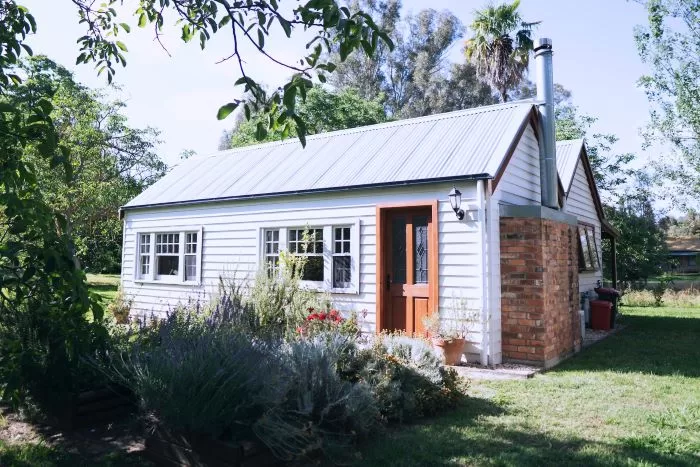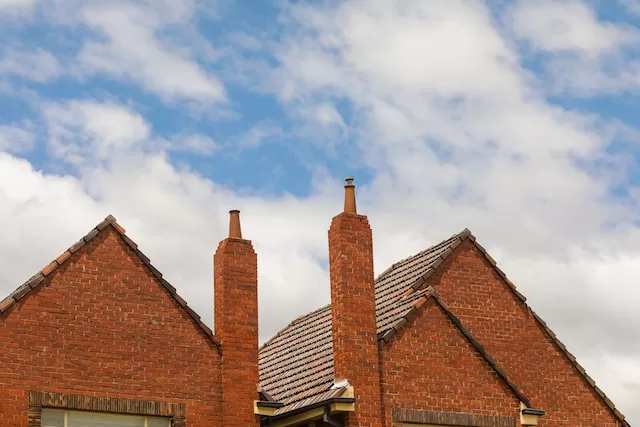Real Estate
Why People Are Buying Homes That Are “Good Enough”

In the past, people searched for the perfect home. They wanted their forever palace: somewhere they could stay for the rest of their lives, or at least until the kids grew up.
But things are changing. That’s no longer how market participants are operating. While forever homes were something that people went for in the past, today they see things differently. Buying a house that’s “good enough,” to use a term coined by the psychotherapist, Winnicott, is what most are aiming for.
But what does this mean in practice? What are buyers looking for when they purchase a home that’s “good enough?” Let’s take a look.
It Is Something That Has All The Essentials
Buyers aren’t looking for fancy rain showers or bespoke murals hand painted on the walls. Rather, in today’s market, they’re looking for something that has all the essentials. They want a well-maintained home that has the basics sorted and is in a good location for work and family life. A home that will increase in value and won’t become a constant drain on their finances is what they are looking for. Running an expensive property with all the stress involved isn’t what they’re after.
Even if the aesthetics aren’t perfect, buyers aren’t too worried. They’re okay with making aesthetic upgrades here and there, as long as the basic elements are good. They want properties with sturdy windows, good locks on the front door, and dry interiors. Optional extras, like air conditioning, are only necessary in regions where it gets too hot at night to sleep. Other than that, they don’t need them.
If things are a little outdated, it’s no big deal. There might be vinyl on the kitchen floor and ugly pink tiles in the bathroom, but that’s okay. What matters is that the house is intact and capable of holding a family.
It Fits In With People’s Lifestyle

Source: Unsplash
Homeowners want properties that fit in with their lifestyle. It doesn’t matter so much that they’re not perfect. What’s important is whether they function and help them build the lives they want to lead.
Imagine finding a home on a property portal that’s just 10 minutes from your work and five minutes from the local clubs you go to. This sort of house is ideal for helping you maximise your time and get as much done as possible. You’re not spending an hour on the train in the morning, just travelling to work.
For some people, a home that fits their lifestyle is something that they can enjoy in the summer months. Perhaps they want somewhere with a nice garden or plenty of space to sit outside and enjoy the fresh air.
A good home should be something that meets your needs year-round. It should be warm in the winter and cool in the summer, with plenty of space to go outside. You shouldn’t feel cramped or claustrophobic in your home, particularly in the evenings.
It Respects Your Budget
House prices have been on a tear globally in recent years. Supply shortages mean that it’s almost impossible for people to find a property that isn’t multiple times their annual income. There are some exceptions, but they are rare.
Any home you buy should respect your budget. It shouldn’t stretch you to the limit. You want to have money left over at the end of the month to enjoy your life.
Consider what you can do to improve your housing situation. Ideally, you want to spend less than 20 percent of your household income on accommodation. Any more than this and you’ll start running into difficulties financing all the things that you want to do with your life.
These days, lenders are willing to qualify people with higher borrowing ratios. But this situation may not last, particularly if central banks continue to insist on raising rates. The higher people’s debt-to-income levels, the more will start looking for “good enough” properties, particularly in the short term.
According to research, around two-third of home buyers had regrets about how they engage with the home buying process. Most people spend right on the limit of what they can afford without really thinking about the consequences later on. Because of this, they find it harder to thrive financially.
It Can Be Renovated
A “good enough” house should be livable. But buyers know that it doesn’t need to be perfect. Even if there are some elements that aren’t quite right, they can always be sorted out in the future.
Many couples with young children choose semi-derelict homes. They move in for a small amount of money and then spend the rest of the time building their savings to renovate. They start with the low-hanging fruit first (and the things that need to be done) before moving onto more cosmetic upgrades.
These renovations can normally be completed without spending a fortune but still deliver impressive results. Choosing to do the work yourself can make your home improvements even cheaper. You just need to find a store selling the high-quality materials you need, such as Clear Amber Shop, and you will be ready to start your renovations.
What’s amazing about this process is just how much people can transform a typical house. Renovations make a property feel brand new and, under the right circumstances, can add 50 percent or more to the value. Most of the time, you can recuperate the money you spend in the form of a higher selling price.
It Is A Solid Foundation
When you live a chaotic life, you never know which direction things are going to go next. Because of this, having a house that you can rely on is essential. You need a stable base of operations that’s always there for you, no matter what is going on in the rest of the world.
A good enough house is precisely that – a house that caters to your needs. It doesn’t cost you a great deal, so you don’t have to think about it all the time. And you can use the extra income you save for other things your family needs, such as tuition, vacations and vehicles.
Conclusion
There are many reasons why people are buying “good enough” homes in today’s economy. But the main driver is to enjoy life more. Climbing the property ladder takes a long time and most people would much prefer to live somewhere smaller and save their money.

















































